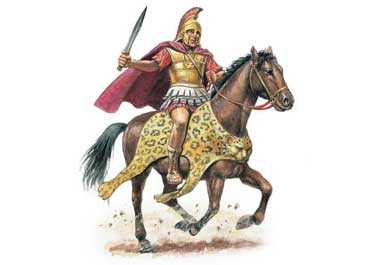Alexander the Great was a lord of Macedonia who vanquished a realm that extended from the Balkans to current Pakistan.
Alexander was the child of Philip II and Olympias. He was raised with the conviction that he was of celestial birth. "From his soonest days, Olympias had urged him to trust that he was a descendant of legends and divine beings. Nothing he had achieved would have demoralized this conviction," composes Wellesley College works of art teacher Guy MacLean Rogers in his book "Alexander".
"The identity of Alexander the Great was a Catch 22," Susan Abernethy of The Freelance History Writer told LiveScience. "He had awesome charm and power of identity yet his character was loaded with logical inconsistencies, particularly in his later years (his mid-thirties). Be that as it may, he had the capacity to inspire his armed force to do what appeared to be outlandish."

Alexander was a visionary, said Abernethy. His capacity to dream, design and strategize on a huge scale enabled him to win numerous fights, notwithstanding when he was dwarfed. It additionally propelled his men, who knew they were a piece of one of the best triumphs ever.
Alexander could be motivating and fearless, proceeded with Abernethy. He was dedicated to preparing his men, compensating them with distinction and ruins, and going into fight adjacent to them, which promoted their commitment and certainty. "The way that Alexander was youthful, delightful and compassionate just expanded his impact on his troopers and subjects," she said.
However, in spite of his military achievements, antiquated records say that he neglected to win the regard of a few his subjects and, besides, he had a portion of the general population nearest to him killed.
Alexander the sovereign
In any case, King Philip II of Macedon was one of Alexander's most powerful good examples, said Abernethy. "Philip guaranteed Alexander was given an imperative and huge training. He orchestrated Alexander to be guided by Aristotle himself … His training imbued him with an affection for learning, rationale, logic, music, and culture. The lessons of Aristotle [would later aid] him in the treatment of his new subjects in the realms he attacked and vanquished, enabling him to appreciate and keep up these different societies."
Alexander watched his dad crusade almost consistently and win a great many victories. Philip rebuilt the Macedonian armed force from native warriors into an expert association. Philip endured genuine injuries in the fight, for example, the loss of an eye, a broken shoulder, and a disabled leg. In any case, he simply continued battling, something Alexander would do as an administrator."
To be sure, antiquated records demonstrate that the two wound up irritated later in Alexander's high school years and at one point his mom was ousted to Epirus. "Alexander may have loathed his dad's numerous relational unions and the youngsters conceived from them, considering them to be a risk to his own particular position," said Abernethy.
Philip II was killed in 336 B.C. while praising the wedding of his little girl Cleopatra (not the celebrated Egyptian pharaoh). The individual who cut him was said to have been one of Philip's previous male darlings, named Pausanias. While antiquated journalists turn a detailed story about his intentions, some advanced antiquarians speculate that he may have been a piece of a bigger plot to slaughter the ruler, one that may have included Alexander and his mom.
In the season of his demise, Philip was thinking about attacking Persia. The fantasy was passed onto Alexander, somewhat by means of his mom Olympias, as per Abernethy. "She encouraged in him a consuming dynastic desire and revealed to him it was his predetermination to attack Persia."
Upon his dad's passing, Alexander moved rapidly to combine control. He picked up the help of the Macedonian armed force and threatened the Greek city expresses that Philip had vanquished into tolerating his run the show. After battles in the Balkans and Thrace, Alexander moved against Thebes, a city in Greece that had ascended in insubordination, vanquishing it in 335 B.C., and had it annihilated.
With Greece and the Balkans placated, he was prepared to dispatch a crusade against the Persian Empire, a battle his dad had arranged yet, as destiny would have it, he would be the one to lead.
The second key fight he won, and maybe the most essential, was the Battle of Issus, battled in 333 B.C. close to the old town of Issus in southern Turkey, near cutting edge Syria. In that fight, the Persians were driven by Darius III himself. Arrian gauges that Darius had a power of 600,000 troops (most likely fiercely overstated) and situated himself at first on an incredible plain where he could mass them all successfully against Alexander, who wavered to give the fight.